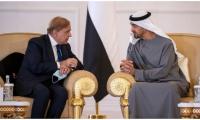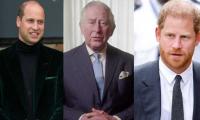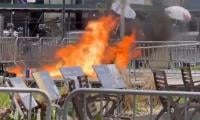LONDON: The Metropolitan Police have identified no new line of inquiry after assessing the material that Pakistani police sent to the police here seeking fresh probe into the Muttahida Qaumi Movement’s founder Altaf Hussain and his associates.
The Metropolitan Police has confirmed to The News/Geo that officers from the Metropolitan Police’s National Terrorist Financial Unit (NTFI) assessed material in relation to the money laundering which the Pakistani authorities sent after the investigation was declared closed by the police here in October 2016.
The police said that the new material was passed by Pakistani authorities after Altaf Hussain and his then associates--Tariq Mir, Sarfraz Merchant, Muhamamd Anwar, Iftikhar Quraishi, Sarfraz Ahmed and others--were advised that there would be no criminal prosecution following a police investigation and advice from the Crown Prosecution Service (CPS).
This means that Pakistani authorities didn’t send to the police the information it held on the MQM leader while the police actively pursued the case of money-laundering.
The spokesman said: “In October 2016, the suspects in the case were advised that there would be no criminal prosecution following a police investigation and advice from the Crown Prosecution Service. All lines of inquiry have been exhausted, including international enquiries.”
After investigating the MQM leader and his associates for nearly three years, the police dropped the case after the CPS advised the police that it didn’t have sufficient evidence to charge the suspects.
It’s understood that the police presented the file before the CPS on three occasions seeking charges but the CPS assessment found that prospects of bringing successful prosecution were minimum and the Met accepted that there was insufficient evidence to prove that the money seized was the proceeds of crime or was intended for use in unlawful conduct. The spokesman said that Pakistan’s FIA passed new material in relation to the money-laundering allegation to the police after the case was closed in October 2016, but the police found nothing new or actionable in the new material.
The police spokesman said that it received material from the Pakistani authorities in various instalments after October 2016 in which Pakistan asked the police to assess the new material and link it with the old file. “Since then, officers from the Met’s National Terrorist Financial Investigation Unit have been passed further material in relation to that money laundering investigation, which has all been assessed and no additional lines of enquiry identified.”
It’s understood that the Metropolitan police will be open to look at new information it receives in relation to the money-laundering case, but the fact that the two countries didn’t cooperate while the original investigation was on means that a fatal blow was dealt to the case and then the police arrived to the conclusion that it couldn’t carry on investigation the case on public interest grounds as well as the tenant of enough evidence.
The money-laundering case against the MQM founder started in the end of 2012 when Scotland Yard officers raided the offices of the MQM in Edgware and found piles of cash hidden in cupboards in the excess of over £200,000. In another raid at the house of Altaf Hussain in June 2014, more than quarter of a million pounds were recovered by the police from under his bedroom, cupboards and attic. The cash was seized under the Proceeds of Crime Act 2002.
Further raids were conducted at the homes of Muhammad Anwar, Tariq Mir, Sarfraz Merchant and others from where papers and evidence was seized by the police units.
Officials of the FIA and the Ministry of Interior said in April this year that it has launched a fresh push to plead re-investigation in the money-laundering case against the UK-based chief of the Muttahida Qaumi Movement-London.
During the course of the investigation six people were arrested; 11 other people were interviewed under caution; a total of 28 interviews were conducted at police stations of persons under investigation; over 100 witness statements were taken; and nine premises were searched which were located in the South and North of England.
President called the Senate meeting under Article 54 of the Constitution
Crowd’s long wait due to persistent rain backed by heavy showers came to an end just for two deliveries with New...
Chief Justice Justice Faez Isa said amendments to the High Court Rules were necessary before appointment of judges
A division bench of the PHC comprising Justice SM Attique Shah and Justice Syed Arshad Ali heard the petition in which...
According to the Senate Secretariat, Gilani emphasized better coordination between the two Houses







